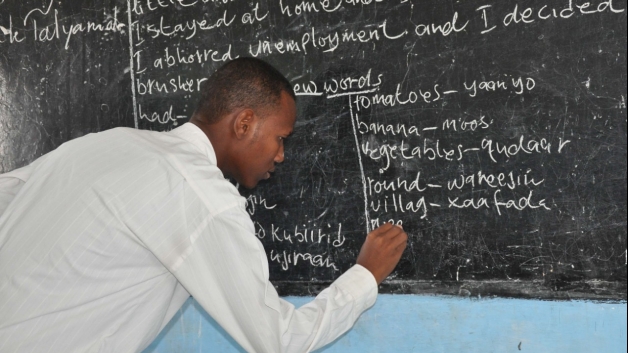Only 25 per cent of Nigerian babies are exclusively breastfed as compared to Ghana’s 63 per cent exclusively breastfed babies.
The World Health Organisation and the UNICEF recommends exclusive breastfeeding during the first six months of an infant’s life and complimentary feeding, along side breastfeeding for, up to two years.
But Angela Chisom (not real name) will not breastfeed her child exclusively. She has no proper breastfeeding education and thinks her child will be underfed if she exclusively breastfed.
Speaking to TheCable under the condition of anonymity, she said: “I give my child water, very well. Only breast milk cannot (sic) be enough for the child.”
Advertisement
“From day 1, I include water and after three months, I start to give ribena and other things.”
Chisom isn’t alone in this practice. When adding mothers who breastfeed their children but complement with water, fizzy drinks or formula, over 43 per cent of Nigerian babies are breastfed. So, ignorance plays a big role in poor breastfeeding practices.
But it is not just ignorance, a lack of coordinated favourable breastfeeding enabling policies contributes, Mya Mbonu (not real name) says she will breastfeed exclusively for the first three months of life and complement because she has to go back to work.
Advertisement
Working mothers get a maximum of three month paid maternity leave in most parts of Nigeria and there are few to no organisation with in house creches, nurseries or nursing rooms.
Expressing and storing breast milk in refrigerators in Nigeria can be a challenge with erratic power supply that can cause poor preservation of the milk.
The challenges are real even though breast milk has all nutrients a child requires in its first six months of life.
According to Nigeria’s federal ministry of health, there is a one-thousand day window of opportunity of nourishment between pregnancy and a child’s second birthday.
Advertisement
If a child is exclusively breastfed and other variety of foods are introduced after the first six months, the child gets the best shot of reaching his potentials and setting the stage for life.
If not, stunting occurs and “most stunting happens in this critical period,” the federal ministry of health warned in a documentary.
Worse, the cost of malnutrition during the first 1000 days from pregnancy to the second birthday is almost always irreversible.
The attendant effect poor education performance, lower IQ and poor growth and development.
Advertisement
NIGERIA’S PROGRESION REALLY SLOW
In 1994, both Nigeria and Ghana had a 7.4 per cent rate of exclusively breastfed children – absolutely dismal. But by 2013, Ghana recorded an over 63 per cent rate of exclusive breastfed babies, and Nigeria, only 17 per cent.
Advertisement
It is, therefore, not a coincidence that Nigeria’s malnutrition and stunting rate has stagnated at around 4o per cent. In fact, 1/3 of children across the nation are stunted.
Two out of every three children are not eating the right foods. Many are eating only starches like cassava.
Advertisement
In 1994, both Nigeria and Ghana had about 7.4 per cent of children exclusively breastfed which is very low but in 2013.
Advertisement
Flavia Bustreo, WHO’s assistant director-general, family, women’s and children’s health, says “everything needs to be done” to support women who want to breastfeed at any time and in any place because “exclusive breastfeeding is the best way to give your child a great start in life”.
In speaking about evidences that breastfeeding is not only the basis of early childhood development but the basis of economic development, Bustreo cites studies published in The Lancet journal.
“We now also know that exclusive breastfeeding can confer life-long advantages. The Lancet reviews found a clear link between extended breastfeeding and higher IQ scores and school attainment,” she said.
“Researchers found that this leads to higher earnings in later life – 12% higher per hour in high-income countries, and 16% in low- and middle-income countries.
“Sadly, though, the benefits of exclusive breastfeeding remain unrealised in many parts of the world. Just 1 in 5 children is breastfed for 12 months in high-income countries, while a third of children aged between 6 months and 2 years receive no breast milk at all in low- and middle-income countries.”
Bustreo says The Lancet studies that about US$ 300 billion is lost annually because of some children who are not exclusively breastfed as infants and do not reach full mental capacity.
The ministry of health in Nigeria says it also found that investment in nutrition yields 25 times the initial investment.
“Healthier children complete more years in school and have better performance and can add at least 10 per cent to life time earnings.”
Children who are well nourished become a productive labour force and can boost the GDP by as much as 11 per cent.
“For every 1000 naira spent in key nutrition, we will generate 2.5 million naira, if we scale up infant breastfeeding,” the ministry said.







